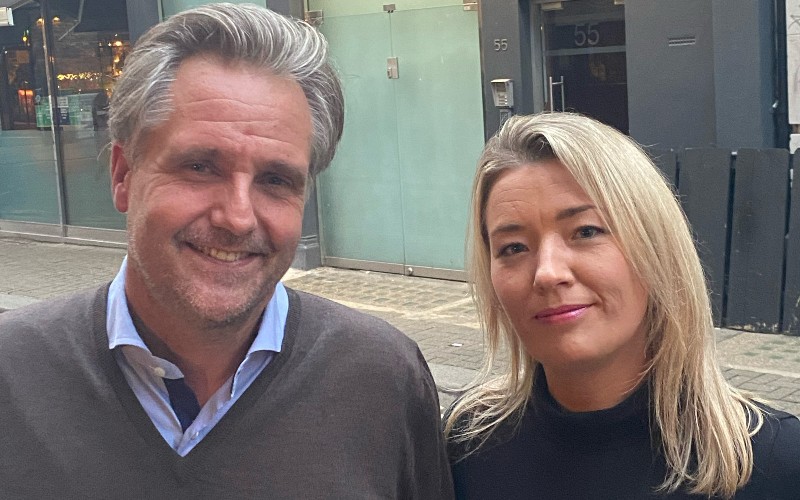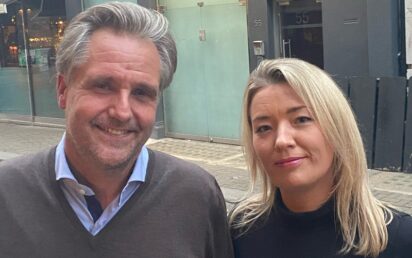Our special series about tech businesses founded in 2020 highlights tales of resilience, remote relationships and pivoting. No.9: MOJO
John Thornhill and Sasha Cole had planned their dementia app MOJO pre-COVID – yet the pandemic accelerated their plans.
MOJO provides 360-degree care to patients and aims to ease the burden on carers, a group of people the duo says have been previously forgotten.
Based in Godalming and inspired by Cole’s years of experience of working with dementia patients, MOJO launched in November 2020 and offers features such as free online workshops for carers.
“We were due to launch [in 2020] anyway but the pandemic has really changed the level of service we’re able to offer,” says Thornhill. “Older people have been forced to become more comfortable with using things like Zoom so we’re able to become more accessible for a wider audience.”
The business came from Cole’s experience of working with dementia patients and family members, where she found that the burden increases across the family the more the condition takes hold.
With restrictions from the pandemic placing more pressure on the primary carer, there has never been a more important time to launch MOJO – which aims to help people find ‘moments of joy’ – say the pair.
Both say taking the view that you can find positives in a negative situation has benefited them in the face of adversity, for example the have been able to focus on their business without distractions.
“At the back end of 2019 we were working on the content and then lockdown came and gave us time to work on the technological development,” Thornhill says.
“In many ways, we’ve been able to navigate through the peaks and troughs of the pandemic in a way that hasn’t been detrimental to the business – if anything it’s given us greater focus.”
The MOJO online support system and app connects everyone involved in the care of a loved one, for a monthly subscription that allows ten family members to take part.
It includes a medication manager, checklists for every step of the journey, a calendar and messaging system that’s distributed across the family network, and a friends and family section where relatives can add photographs of themselves across different ages up to the present day to aid a dementia patient’s ability to recognise them.
There is also a time machine section that patients and carers can use together, showing key events in that person’s history alongside songs, movies and artefacts from that era.
In addition, there is a mentoring section for family members and a badge system for the patient, so members can be alerted in case they get lost.
“We’re using tech but the platform is much more human and interactive,” says Thornhill, adding that the app recognises that a patient can go through a plethora of experiences in any one day, which can be isolating for them and their carers.
He gives the example of someone experiencing a “time shift”, where they believe they are in a different period of time. Rather than the carer explaining that they are ‘wrong’, they could use the time machine to show pictures and sounds from that time to bring comfort.
Another issue common with dementia is recognising people in the present. The use of a slider with photographs to show a family member ageing can help that person, he adds.
“Our approach is validating their opinions and what they believe in because creating a barrier could create conflict,” says Cole.
The shift further towards remote meetings because of the pandemic should benefit MOJO, she adds, with the medical profession and older generation now embracing tech much more than previously.
“The medical profession has been slow to embrace technology previously because it felt older people wouldn’t have the appetite for it, but that’s changed [in 2020] and we’re really seeing things gain momentum,” Thornhill says.

